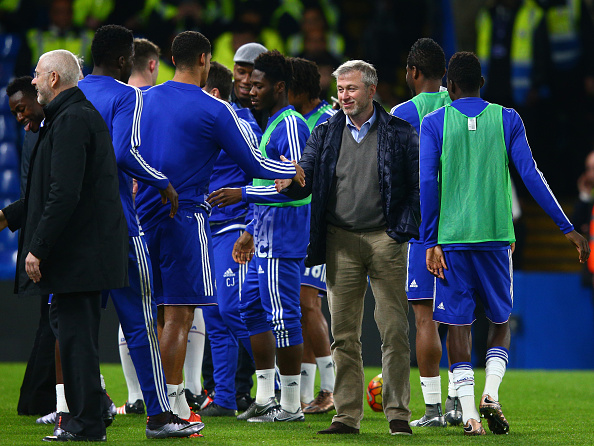Abramovich’s toxic Chelsea FC legacy must make us rethink ownership in our communities

Chelsea football club is in limbo. It can’t sell tickets or shirts, it can’t even renew contracts. This is a London cup-winning team that has been sent to Coventry and has no idea how long it will stay cut off. Dozens of players, thousands of employees and millions of fans are all now suffering for the sake of one man – Roman Abramovich.
This is a brutal end to a story which started almost two decades ago – and one that shaped not just a club but a whole sport.
Abramovich poured more than a billion pounds into Chelsea in 2003. His roubles turned into trophies as success flowed. But it wasn’t just West London that saw the transformation. He kickstarted a new era of foreign ownership of football clubs in Britain. Premier League clubs are now owned by everything from Arab nation states to US consortiums.
Along the way, the Premier League has become the world’s most lucrative football league. Revenues soared and many have reaped the rewards. Russian President Vladimir Putin changed that overnight. His invasion of Ukraine started a war that has led to sanctions on Russia’s oligarchs and exposed the ownership model that has introduced geopolitical risk into parks across our country.
Sanctioning oligarchs’ trophy assets is easy when it is yachts and penthouses, when it is a football club at the heart of a community in Britain, that hurts more than one person.
We all know that football clubs are not just assets. True, the brand can be bought and sold but that’s not what counts. To fans, these are centuries-old living, breathing churches to the local communities they serve. This isn’t about a balance sheet but the heart and soul of fans and footballers who have worn the colours for generations. Stamford Bridge has an intangible, emotional value beyond compare.
That’s true at every level. When James Daly MP saved Bury he did more for the community than many MPs achieve in a lifetime.
Football clubs matter. We have to think about who owns them, and what they can do with them, differently.
So what should that model be? How do we balance openness to investment with valuing a long-term community approach?
The government’s recent review of football governance could provide some answers. Tracey Crouch’s commission recommended a new independent regulator, an integrity test for owners – and a golden share that gives fans a bigger say in key decisions.
It’s not just about football clubs, but the potential for different ownership models to shape society in the direction of freedom and prosperity.
We can see these lessons in another £1.5bn asset whose ownership is also under scrutiny: Channel 4. Set up in the wake of strikes, Channel 4 was created by Margaret Thatcher as a disruptive public sector broadcaster to challenge the stale duopoly of the BBC and ITV.
Its commissioning model was meant to foster the rise of small production companies. It worked.
Channel 4 commissions more independent production companies than any other public service broadcaster. It helped Britain’s creative industries to flourish, by fostering a culture that kept ownership in the hands of small innovative, independent companies.
In this way, Channel 4’s value extends far beyond the programmes that it airs. Now Channel 4’s ownership is also up for question. But the conclusion might be a different one, because Channel 4 is sustainable and profitable. In this case, the ownership model works.
In the 1980s, Margaret Thatcher pledged to create a country of home-owners and share-owners. She was right that what we own and how we own it shapes society more than anything else. Ownership matters.
Today, we need to think about that idea again.
As many find it harder to own homes or a stake in companies, we need to look hard at what we value and protect what lies at the heart of our community. We need another political and economic transformation to bring that back into balance and face down the oligarchs in our own lives. We need a rethink not just a replay.
For all the latest Lifestyle News Click Here
For the latest news and updates, follow us on Google News.

